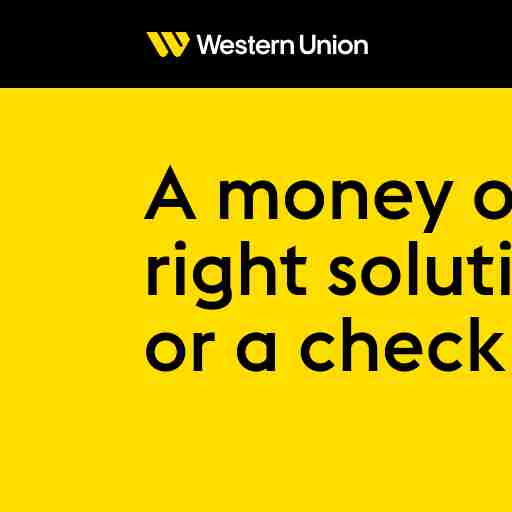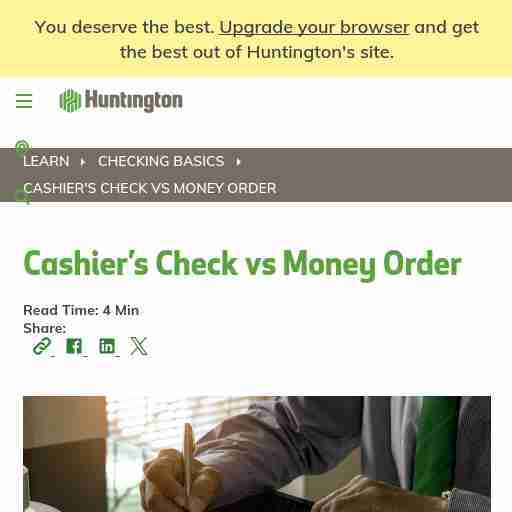When it comes to managing your finances, there are many different options available. Two common methods for making payments or receiving funds are checks cashed and money orders. In this blog post, we'll explore what checks cashed and money orders are, how they work, and their benefits and drawbacks.
A check cashed is a financial service that allows you to receive cash in exchange for a check. This service is typically offered by retailers or financial institutions such as banks or credit unions. When you present a check to be cashed, the retailer or financial institution will verify that the check is valid and has not been altered before providing you with cash.
Check cashing services can be convenient if you don't have access to a bank account or need immediate access to funds. However, these services often come with fees that can add up over time.
A money order is a type of payment similar to a check but with some distinct differences. A money order is purchased from a retailer or financial institution using cash or another form of payment. The purchaser then writes the name of the recipient on the money order along with any necessary information such as an account number.
The recipient can then deposit or cash the money order at their bank or credit union. Money orders are often used for transactions where personal checks may not be accepted, such as paying rent or making purchases online.
The types of checks that can be cashed vary depending on the retailer or financial institution. Some may only accept payroll checks while others may also accept personal checks. It's important to check with the specific location beforehand to ensure they will accept your type of check.
The cost of cashing a check varies depending on the retailer or financial institution. Fees can range from a flat rate to a percentage of the check amount. It's important to compare fees at different locations before choosing where to cash your check.
Yes, in most cases, money orders can be refunded or cancelled. However, there may be fees associated with doing so, and the process can take several weeks to complete. It's important to keep the receipt and any other documentation related to the money order in case you need to cancel it later.
Checks cashed and money orders are both useful financial tools that can provide immediate access to funds or allow for secure transactions without needing a bank account. However, they also come with fees and limitations that should be considered before using them as your primary payment method. By understanding how checks cashed and money orders work, you can make informed decisions about when and how to use them.
If you have any additional questions about checks cashed or money orders, feel free to contact us for more information.

You may be able to cash your money order at banks and other retailers (grocery stores, check-cashing locations or other stores where you've been able to cash ... A money order is the right solution when cash or a check won’t cut it Western Union® money orders offer a reliable, convenient alternative to cash or a check. Use them to give a gift, make a purchase, or even pay a bill. You’ll both earn a $20 Amazon.com e-gift code**. Think of a money order as a pre-paid check. It provides a reliable way to transfer funds from one person to the next. Money orders can be purchased at any participating Western Union® agent location. Stop in at any participating Western Union location. Purchase for the principal amount you need. How to request a money order refund? If you have your original money order or your purchaser’s receipt and your money order has not been cashed. If you do not have your original money order or your purchaser’s receipt and your money order has been cashed refer here for your options Benefits of using Western Union® money orders Buy at participating Western Union agent locations. With a money order, there’s no need for a bank account. It’s a simple and reliable way to give money in person or send it through the mail. HOW DO I REQUEST A MONEY ORDER REFUND? If you are a purchaser and you have a money order receipt, submit refund request here. Click here for other submission options. WHERE CAN I CASH A MONEY ORDER? You may be able to cash your money order at banks and other retailers (grocery stores, check-cashing locations or other stores where you’ve been able to cash checks in the past). In some circumstances, the bank or retailer may charge you to cash your money order. You may also be able to deposit the money order into your bank account.
---

Oct 17, 2023 ... USPS.com comes up when searching about a USPS money order. And checking multiple sites to verify info is basic due diligence. You trust randos ... You've been blocked by network security. To continue, log in to your Reddit account or use your developer token If you think you've been blocked by mistake, file a ticket below and we'll look into it.

Cashier's checks are issued by a bank, are available in higher dollar amounts, are considered more secure than money orders, and have higher fees than money ... You deserve the best. Upgrade your browser and get the best out of Huntington's site. Skip to navigationSkip to main contentSkip to loginSkip to footer LEARN CHECKING BASICS CASHIER'S CHECK VS MONEY ORDER Cashier’s Check vs Money Order A cashier’s check and a money order are both forms of payment that can be used instead of cash or personal checks, but that’s where the comparisons stop. Cashier’s checks are issued by a bank, are available in higher dollar amounts, are considered more secure than money orders, and have higher fees than money orders. Money orders can usually be purchased at a check cashing store, post office, grocery store, and many other places, are typically limited to less than $1,000, and have lower fees than cashier’s checks. Read on for more information about the difference between cashier’s checks and money orders. There are several advantages to using a cashier’s check. This kind of check is great for larger dollar amounts and may prevent you from needing to buy multiple money orders. It is considered more secure than a money order and some payees may specifically request them. The money is backed by the bank and considered “guaranteed funds.” Landlords may request that a security deposit be made by cashier’s check. In addition to being reliable funds, this is a way to prove that the potential tenant has a banking relationship. Cashier's checks are good for large purchases. Cashier’s checks are typically used for larger purchases. Although the policy may change from bank to bank, generally there’s no upper limit for a cashier’s check. The payee typically has quicker access to a larger amount of the funds with a cashier’s check.
Activate and hold the button to confirm that you’re human. Thank You! Do Not Sell My Personal Information Request My Personal Information